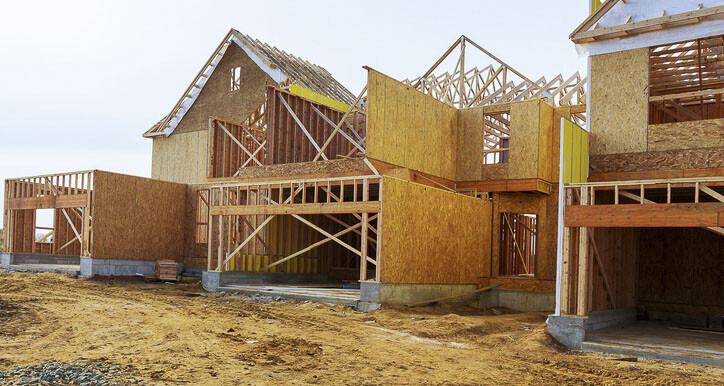
Mark Harmsworth of the Washington Policy Center believes there is more to be done to address affordable housing, much can be achieved without increasing taxes
Mark Harmsworth
Washington Policy Center
During the 2023 Legislative Session, a flurry of bills were introduced to address the issue of affordable housing in Washington. Now the dust has settled and the session is over, we can see the changes that are coming to the housing market.

Some of the changes are good, some not.
Streamlining the permitting process to reduce construction costs was high on the priority list with bills such as House Bill 1167, that would have simplified the design review process and House Bill 1026, which exempts some building permits from onerous environmental review. House Bill 1026 passed, but unfortunately House Bill 1167 died in the Senate after passing the House unanimously.
Increasing density in existing neighborhoods was one of the more controversial solutions offered with homeowners, developers, realtors, cities and counties at odds over the right approach. A mixed voted on the passage of House Bill 1110, referred to as the ‘Middle Housing Bill’ due to concerns on state preemption (overruling local zoning ordinances) and the potential impacts to existing, established neighborhoods. Time will show the effectiveness of the policy and if the bill produces the expected relief. In a similar fashion, the passage of House Bill 1337 will require cities to allow Accessory Dwelling Units (ADUs) in their Urban Growth Areas (UGAs).
Bills that passed that won’t help affordable housing include House Bill 1474 which adds a $100 fee to every document recorded during a sale of a home (and in fact, several other recorded documents) and Senate Bill 5197, making it harder to evict bad tenants.
A couple of other good policy bills that made it across the finish line, House Bill 1349, improves third party purchase protections for foreclosure, Senate Bill 5058, exempting building with 12 or fewer from large building permitting processes and Senate Bill 5290 which consolidates the local permit processes to speed construction. All these bills will reduce construction costs and will help make housing more affordable.
One big win for affordable housing is the failure of House Bill 1628 which would have created a new real estate tax category of 4% on property valued at over $5 million and would allow counties and cities to increase their local Real Estate and Excise Tax (REET) by 50%, without a vote of the people. This would have been a disaster for the cost of multi-unit family homes, specifically the type of homes that help make housing affordable.
In summary, the legislature made some good strides to address some of the issues facing the housing industry. The elephant in the room, however, still wasn’t addressed – that’s updating the Growth Management Act to increase the available buildable land. Simple changes to the Growth Management Act (GMA), by modifying the arbitrary growth boundaries and population density goals set by the Puget Sound Regional Council (PSRC) will increase available land and the ability for more affordable housing to be built. Increasing buildable land not the silver bullet to fixing affordable housing, but combined with other policies, will help significantly.
There is more to be done to address affordable housing, much can be achieved without increasing taxes.
For WPC’s recommendations on how to increase housing affordability and availability, without increasing fees and taxes, click here.
Mark Harmsworth is the director of the Small Business Center at the Washington Policy Center.
Also read:
- Opinion: Courts blocking the Kroger-Albertson merger won’t stop consumers from making choicesPaul Guppy of Washington Policy Center critiques judicial rulings that block the Kroger-Albertsons merger, citing changing consumer trends and potential job losses.
- Opinion: Workers need money — and the many other gifts work can bringElizabeth New Hovde discusses the value of work, its benefits for workers and employers, and its impact on personal growth.
- How Should Washington Taxpayers Handle TriMet’s Proposed Light Rail Costs? Share Your Thoughts!C-TRAN Board reviews TriMet’s proposal for Washington taxpayers to fund 45% of light rail operating costs, sparking local debate.
- Opinion: Get ready for the 2025 legislative sessionNancy Churchill emphasizes the importance of citizen participation as the 2025 Washington legislative session begins.
- Opinion: Thousands of Republicans didn’t vote. Why?Amboy resident Thomas Schenk discusses low Republican voter turnout and election concerns in Clark County.










